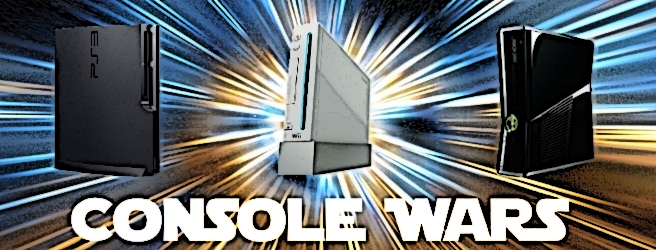Here in North America, Kinect has helped Xbox 360 gain more ground month-over-month, than any other year since its 2005 release. Microsoft says the Xbox brand has grown by 45%, selling over 14 million units over the last fiscal year [1]. But worldwide, the PS3 is selling better.
Despite having an entire year head start, the Xbox 360 only leads the PlayStation 3 by 5% [2]. A gap that is tightening with every passing day. The Xbox 360 may sell extremely well in North America, particularly in the US, but it struggles abroad. In Japan, the Xbox 360 barely moves 10K units in a month [3], unless there is a notable release. In the same region, the PS3 moves roughly 100K units, with numbers fluctuating depending on game release dates.
The PS3 and Xbox 360 are neck and neck. And they'll likely stay that way until either Sony or Microsoft announce a successor to current consoles.
We're not forgetting the Wii, either. The Wii has a sold over an estimated 85 million consoles during its lifetime [4]. But the Wii has already run out of steam. Nintendo knew it, and has already announced the Wii U to be the successor. Wii sales have already started to drop off worldwide, which leaves plenty of room for the PlayStation 3 and/or the Xbox 360 to catch up to the Wii's staggering sales numbers. Especially if either the PS3 or Xbox 360 were to drop in price.
We're still betting that the Nintendo Wii will come out on top; it's going to be difficult to catch up to lifetime sales numbers, which will surely increase due to the much more affordable entry point. The PS3 will likely come in 2nd place, if only because the Xbox 360 fails to gain ground in territories outside of the US. The Xbox 360 will fall in last place, but not far behind the PS3. In the US alone, the Xbox 360 will end up being the clear winner.
Microsoft has done a hell of a job establishing Xbox as the brand to have in the US. Kinect was the perfect grab for the casual crowd that was growing tired of the Wii. Future innovations with Kinect, like Skype integration, could have considerable appeal to a broader market. An Xbox 360 successor likely isn't due until 2013, and will again feature Kinect as a focal point.
Sony will continue to support the PlayStation 3 for the foreseeable future much like they have with past consoles. Unlike Kinect, the PlayStation Move hasn't done anything to extend the life and appeal of the PlayStation 3. Sony will also likely shift a large focus into the PlayStation Vita, as the Japanese audience moves toward a primarily portable focus. With the PS3 still having much untapped potential a PS4 is not in the cards until 2014.
Nintendo on the other hand, will have to prove again that the Wii U's controller isn't a gimmick. Pricing will become a major factor in if the Wii U can follow in the Wii's highly successful footsteps. The 3DS will never live up to the Nintendo DS's sales figures, largely due to consumer hesitance with 3D technology, and an uneducated fear that the 3DS screen could be damaging to young children's eye-development.
Consoles may not have the same longevity next time around. Digital downloads and cloud-based services seems to be where the industry is headed. Services like EA's Origin may prove that cutting out the middle man–the big three console manufacturers–is lucrative enough for other publishers to follow suit.
The current console manufacturers are at an impasse and new technologies threaten the future of traditional consoles. It's an exciting time for the video game industry, there's no telling where it could go next.







